1001 Critical Days

1001 Critical Days
1001 Critical Days is an initiative that looks at the time between a child's conception and their second birthday.
This time is very important.
Your baby will experience rapid growth in this time and the interactions they have with you, and those around you, will help to shape their brains. This will lay the foundations for their future development.
Read more about the 1001 Critical Days strategy
The 0-19 Administration Hub can be contacted by:
- Live chat (Monday to Friday, 9am to 5pm)
- Phone: 0800 170 7055, Option 4 (Monday to Friday, 8am to 5pm)
- Email: CUSAdminHub@nhft.nhs.uk
Strong Start Team
The Strong Start team is a group of skilled early years professionals who work with our NHFT Health Visitors and Infant Feeding teams across our county. They help to support families with children aged under 5 years to understand the 1001 Critical Days initiative.
The Strong Start Team can help:
- Signpost or refer to health services including the stop smoking team
- Provide information and access to local support groups
- Help to set up support groups in your community
- Help to assess eligibility with early education and childcare costs for 2 years olds
Find out more about the Strong Start Team's service and programmes
Contact the Strong Start Team
Phone: 07880 136070
Email: strongstartteam@westnorthants.gov.uk
Attachment with your child

Attachment with your child
It is important your child feels secure and loved. By engaging and talking to your child you will help them feel this way and it will support in building not only their trust but also their confidence.
BBC’s Tiny Happy People have a list of advice and activities for attaching with your baby.
Health for Kids is website from our buddy Trust – Leicestershire Partnership NHS Trust – which aims to help development and has lots of advice which you might find useful.
You can contact the 0-19 admin hub by live chat or give the team a call on: 0800 170 7055 (Mon-Fri 8am-6pm).
My emotional wellbeing

My emotional wellbeing
Having a child is a whirlwind of emotions that don’t always feel like they make sense. You can love them wholeheartedly and sometimes you just feel overwhelmed.
If you are feeling worried, sad, or depressed talk to your healthcare professional such as your GP or call The Mental Health Number on 0800 448 0828.
You are not alone in these feelings and it is important to share them.
If you are struggling with your mental health, you can contact services such as our NHS Northamptonshire Talking Therapies or 24/7 Mental Health Number.
The 0-19 Administration Hub can be contacted by:
- Live Chat (Monday to Friday, 9am – 5pm)
- Phone (Monday to Friday, 8am – 6pm) 08001707055 Option 4
Emotion coaching
Emotion coaching is an approach to support parents to help their children when they feel distressed. It works for the little things and the big things. Emotion coaching is a naturalistic parenting approach which has been observed in research to have a beneficial impact on children’s emotional and physical health, their capacity for empathy and their social relationships. The amazing thing is that we can learn this approach and adapt our parenting even if it isn’t our natural style or how we were brought up – we don’t even need to get it right all of the time to have a beneficial impact for our children.
Find out more about emotion coaching.
Our ten tips from NHS Northamptonshire Talking Therapies
We have some advice on how you prioritise your health and wellbeing; and ensure that you can take some time out today, or any day for that matter, to focus on you.
- Talk to someone and stay connected, sometimes just talking and contacting another person can make you feel much better. This can be a relative, a friend or a professional.
- Try to organise a sleep routine, go to bed at the same time and get up at the same time. Sleep is important to your wellbeing even if the normal structure and routine you once had has been disrupted.
- Try to write down three positive things a day you have achieved. These do not need to be big as sometimes just posting a letter is an achievement.
- Take a breath, breathe in for 7 seconds and out for 11 seconds, this will refocus you and give you space.
- Get outside, go for a walk, or stand in your garden just take in some fresh air; ensure you see daylight once a day during your allotted exercise break. Given all the pressures, make sure you have time for yourself.
- Set some small goals for your day that are achievable to give you a sense of purpose.
- Eat regular and healthy meals to ensure your body is well fuelled.
- Make sure with all the juggling of extra roles, that we no longer expect miracles of ourselves, we are trying to do more in abnormal circumstances, with often less support. On any given day, our best is good enough and our best will be different on different days; that’s okay, that is normal.
- Discover mindfulness apps on your phone, they can provide useful techniques.
- Most importantly be kind to yourself, it's okay not to be okay during these very difficult times.
The Changing Minds IAPT Team are a self-referral service so please do feel empowered to reach out if you need our help.
Immunisations

Immunisations
Your child should receive a few immunisations to protect them from dangerous childhood diseases. Immunisations can be called vaccinations or more simply jabs.
You can expect your child will receive an annual flu vaccination.
The children's flu vaccine is offered as a yearly nasal spray to young children to help protect them against flu. Flu can be a very unpleasant illness for children, with potentially serious complications, including bronchitis and pneumonia.
Vaccinating your child will not only protect them against flu but will also help protect more vulnerable friends and family by preventing the spread of flu.
The vaccination will be given by a quick and simple spray up the nose. This is offered at your GP surgery.
The NHS website provides more information about the children’s nasal flu vaccination.
Please take your Personal Child Health Record ('red book') with you so your child's record can be updated.
You can find the Flu Vaccination Consent Form here. Please complete the online form to provide consent for your child's vaccination.
You can contact the 0-19 admin hub by live chat or give the team a call on: 0800 170 7055 (Mon-Fri 8am-6pm) if you would like some more information.
Nutrition and physical health

Nutrition and physical health
Children between the ages of two and four should be encouraged to eat a variety of foods from the Eatwell plate the same as the rest of the family.
You are their role model. If you are an active family who include a healthy diet and healthy habits this is something they will see, and learn from.
You can contact the 0-19 admin hub by live chat or by giving the team a call on: 0800 170 7055 (Mon-Fri 8am-6pm).
National Child Measurement Programme (NCMP)
The National Child Measurement Programme (NCMP) from Roots and Wings on Vimeo.
Activity
Encourage activity and play with your child. 180 minutes (3 hours a day) is the recommended guideline. Once your child can walk you can encourage activities such as:
- Jumping
- Skipping
- Messy play
- Hide and Seek
- Hunting for treasure
- Dancing
- Hopping
- Swimming
Dental health
Avoid sugary food and drink before bedtime. They should be consumed less often and only at mealtimes. Try sugar free, diet or no added sugar drinks. Remember, plain water or lower fat milks are best. It’s free for kids under 18 to visit NHS dentists, so make sure you take them regularly.
Make sure your kids clean their teeth twice a day with a fluoride toothpaste. Help them brush once before bed and once at any other time that suits you and your family.
What should they be eating?
Your child should be encouraged to eat a variety of foods from the Eatwell plate the same as the rest of the family.
The four main food groups are:
- bread, other cereals and potatoes
- fruit and vegetables
- milk and dairy foods
- meat, fish and alternatives (such as eggs, pulses – peas, beans and lentils – nuts and soya).
There is no need to buy portion sized foods as this is more expensive and unnecessary.
Sugary foods and drinks are not advised, but if they do have them occasionally, try to eat at meal times rather than as snacks. This will be better for their teeth and dental health is very important at this stage.
Children above 5 years to adults should base their meals around starchy carbohydrates for energy, such as bread and pasta.
Avoid giving salt at the table and takeaway foods and cooking with salt.
Children at this age should be drinking tap water as it’s the best option to quench their thirst and won’t damage their teeth. However, milk or diluted fruit juice (half and half) can be offered as an alternative. Stick to full fat milk until 2 years old and then semi-skimmed can be drunk.
Other useful resources
Start 4 life
This website provides trusted NHS help and advice during pregnancy, birth and parenthood.
The Eatwell Guide
The Eatwell Guide is one of the most well-known tools to follow for recommendations on eating healthy and achieving a balanced diet.
Start active, stay active: infographics on physical activity
Infographics explaining the physical activity needed for general health benefits for different age ranges.
Minor illnesses

Minor illnesses
As your child goes through life it is likely they will suffer from a minor illness. Usually these illnesses sort themselves out on their own, but it is important when your child is feeling poorly you keep an eye on them.
You should let your GP know if you have any concerns or questions.
Information on colds, coughs, and ear infections
Information on Diarrhoea and vomiting
Whilst most minor illnesses do get better on their own it, the NHS website has a list of other common illnesses and how you can treat them.
You can contact the 0-19 admin hub by live chat or give the team a call on: 0800 170 7055 (Mon-Fri 8am-6pm).
Parenting, play and promoting development

Parenting, play and promoting development
It is important to understand and be aware of your child’s different behaviours and how they might be communicating with you. By engaging and responding to them you can help their skills and their personality to develop.
You can contact the 0-19 admin hub by live chat or give the team a call on: 0800 170 7055 (Mon-Fri 8am-6pm).
FIVE TO THRIVE MODEL
The Five to Thrive model is based of five core principles which will help you be a responsive, engaging parent.
RESPOND
- When your child looks ready, hold them facing you and wait to see if they make eye contact.
- Your child will need lots of time to respond, so pause and wait until they are ready to engage.
- Your child may look away because too much interaction can be very intense for them. Wait for your child to come back in their own time.
- A feed - look for ‘feeding cues’ like lip smacking, sucking and ‘rooting’ (turning their head and opening their mouths - rooting is a reflex action in small babies and happens automatically if you stroke their cheek).
CUDDLE
In an unsettled state your child may fuss, whine, arch their backs, wriggle and be more sensitive to light and noise. Sometimes your child may show they are overstimulated by hiccupping, yawning, sneezing, squirming, throwing their head back or even bringing up some milk. Children who put their hands up to their face are often tired.
If your child is unsettled, they may need a change of pace and might benefit from:
A cuddle. Cuddles provide security and makes the world seem safe.
RELAX
In the crying state your child will be active, often grimacing and crying intensely.
If your child is crying it is likely they are looking for comfort. There may be special ways your child likes to be soothed. For example:
- Do they like being held when you walk about?
- Do they enjoy soft singing?
- Do they like being close to you skin to skin?
- Do they have a favourite cuddling position?
- Do they like to suck on their fingers?
- Do they like gentle rocking in the pram?
- Do they like to have eye contact while you gently ask them what the matter is?
PLAY
- Facial expressions build brain patterns which help children to recognise feelings their own feelings and the feelings of others.
Try this activity:
Follow the lead of your child and mimic their facial expression and the accompanying gestures and then you take the lead by doing your own expression. This encourages your child to take turns and is a form of conversation.
- Tongue play such as sticking your tongue out or blowing raspberries helps to build brain patterns linking together tongue control, human communication, and pleasure. This is pre-speech, making the child more ready to develop speech and language.
TALK
- The very best activity for a child is looking at your face and listening to your voice.
- Try singing gently to your child, then pausing and watching for their reaction, then singing some more (don’t worry if you can’t sing in tune – your child will love hearing your voice and being close to you)
- Taking turns in interaction is important for your child’s development
Safety

Safety
Having a child and keeping them safe can feel like a full-time job. Once they are on the move, it might feel like they are walking towards all the risks and you are running up behind them trying to protect them.
By being aware of what is in you and your child’s surrounding area you can help to reduce risk and keep them, and you, safe.
You can contact the 0-19 admin hub by live chat or give the team a call on: 0800 170 7055 (Mon-Fri 8am-6pm).
Dial 999 for an ambulance if your child:
- stops breathing or turns blue
- is struggling for breath
- is unconscious or seems unaware of what's going on
- will not wake up
- has a fit for the first time, even if they seem to recover.
ACCIDENTS AND PREVENTION
Accidents happen, and it can feel like they happen so fast they feel impossible to stop. However, by keeping your wits about you and being aware of possible risk you are helping to make it more likely that the accident won’t happen in the first place.
Accidents can come in all different ways and types including:
- Burns and scalds
- Choking
- Drowning
- Falls
- Strangulation
- Suffocation
- Accidental poisoning
The NHS website has some useful information and top tips to help you keep your child safe.
If your child has an accident it is important to know what to do and when you need to seek medical advice, the NHS website has a long list of information including where you can learn basic first aid on their website
Safety and pets
It is important from an early age to teach your child to respect the pets you have at home, Teaching them how to stroke gently, not to tug, pull, chase or grab the animals you share you space with, will help to keep them safe. For tips on keeping children safe around your family pets take a look at the BBC’s Teaching kids to care for animals article.
A note on choking
Food is the most common thing for babies and toddlers to choke on, but they are also well known for putting just about anything in their mouths
- Keep small objects, such as buttons, coins, and small toy parts, out of your child's reach.
- Children can choke on solid food, including things like grapes, make sure to cut them lengthways.
- Do not give young children hard foods, such as boiled sweets or whole nuts.
- Keep small, silver button batteries well away from small children. As well as being a choking hazard, they can cause severe internal burns if swallowed.
- Stay with your child when they're eating. Encourage them to sit still while they eat, as running around while eating could make them choke.
- Keep toys designed for older children away from babies and toddlers, as they may have small parts.
- Do not put your baby or toddler to bed with a bottle of milk or juice.
SUN SAFETY
Keeping your child safe whilst they are in the sun is important to protect their skin from the sun’s harmful UVA and UVB rays. Without sun safety and sun protection, sun burns, and dehydration can occur, and these can cause some serious issues for your child.
Here are some tips you can use to help with sun safety:
- If your child is going to be exposed to sunlight use a sunscreen with a minimum 50 SPF rating to protect them.
- If you are taking your child out in their pram do not cover their prams with any type of material as this can be very dangerous.
When a pram is covered it prevents the vital movement of air around your child so the air, they breathe out is the same air they breathe in. Without this movement of air, they will be breathing in a higher percentage of carbon dioxide, leaving them with less oxygen and potentially causing them to struggle or stop breathing.
If you have any questions or would like some more information regarding sun safety and your child, you can ask your health visitor or GP for advice.
Here is a list of additional resources:
- NHS England website
- The NCT’s website
- The Skin Cancer Foundation website
- The Baby Centre website
- For hot weather and baby safety visit the NHS website
Car seats
All children must use a car seat until they are 12 years old or 135 cm (whichever happens first).
The recommendations for the car seat position and type of seat change as the child grows and develops. The legal requirements for car seats can be found on the GOV.UK website. Specific safety advice relating to the car seat you have must be followed in order for it to work effectively.
Keeping walking safe
When walking near a road it is a good idea to:
- hold your child's hand - don't let them run ahead
- look out for and encourage your child to be aware of hidden entrances or driveways crossing the pavement
- put reins on a younger child if they're not strapped in a pushchair
- make sure your child walks on the side of the pavement away from the traffic
- Never let your child go near a road alone or even with an older child.
- Never let children play on driveways.
Children are usually not ready to crossroads on their own until they are at least eight years old - and many will not be ready even then.
Sleep

Sleep
Sleep promotes growth, strengthens their immunity, helps with cell repair and healing, and supports physical and emotional health.
The NHS England website has put together approximate hours of sleep your child needs along with sleep tips and need along with sleep tips.
Sleep isn’t always easy to achieve and if they aren’t sleeping it is unlikely you will be either.
Your child might wake during the night because they need to feel secure. By responding to your child, you help to develop your relationship and keep them feeling safe, nurtured, and happy.
If you are struggling to get your child to sleep or for them to stay asleep please do talk to your health visitor or GP. You can contact the 0-19 admin hub by live chat or give the team a call on: 0800 170 7055 (Mon-Fri 8am-6pm).
What can you do if your child doesn’t want to sleep?
It is important your child learns the difference between day and night.
During the day make sure the curtains are open, and they are stimulated with sensory play and when it comes to getting them to sleep, dim the lights and try to block out sounds that might disturb their sleep.
Toileting

Toileting
Using a potty is a new skill for your child to learn. It's best to take it slowly and go at your child's pace. Being patient with them will help them get it right, even if it sometimes feels frustrating.
You cannot force your child to use a potty.
If they're not ready, you will not be able to make them use it. In time, they will want to use one – most children will not want to go to school in nappies any more than you would want them to.
In the meantime, the best thing you can do is to encourage the behaviour you want. The NHS England website has tips about promoting good potty behaviour.
You can contact the 0-19 admin hub by live chat or give the team a call on: 0800 170 7055 (Mon-Fri 8am-6pm).

 They might call them the terrible twos but this stage of your baby s life is very important. Their characters are going to be shining through, and with them starting to develop their language skills you might find yourself part of some very interesting or strange conversations.
They might call them the terrible twos but this stage of your baby s life is very important. Their characters are going to be shining through, and with them starting to develop their language skills you might find yourself part of some very interesting or strange conversations.